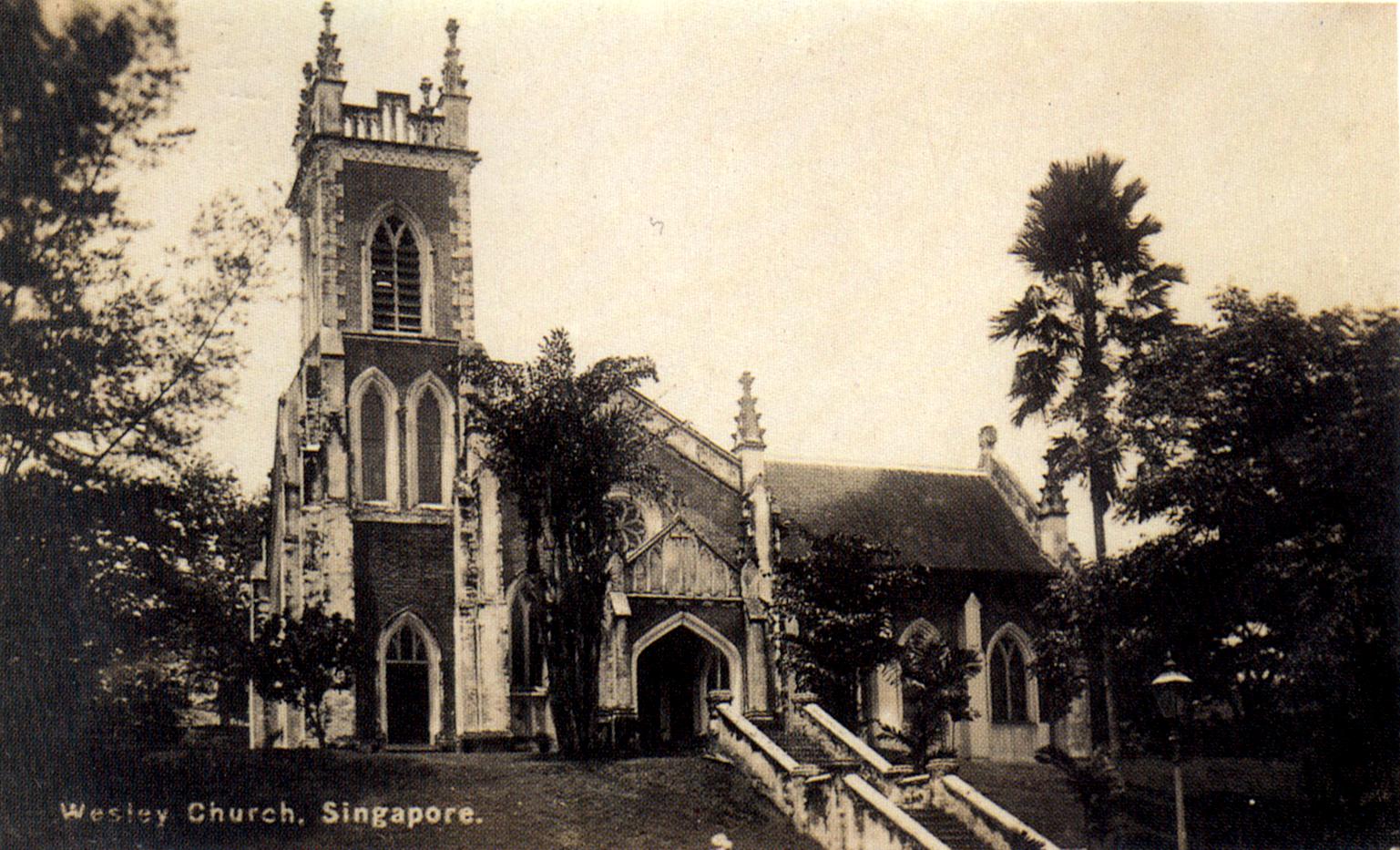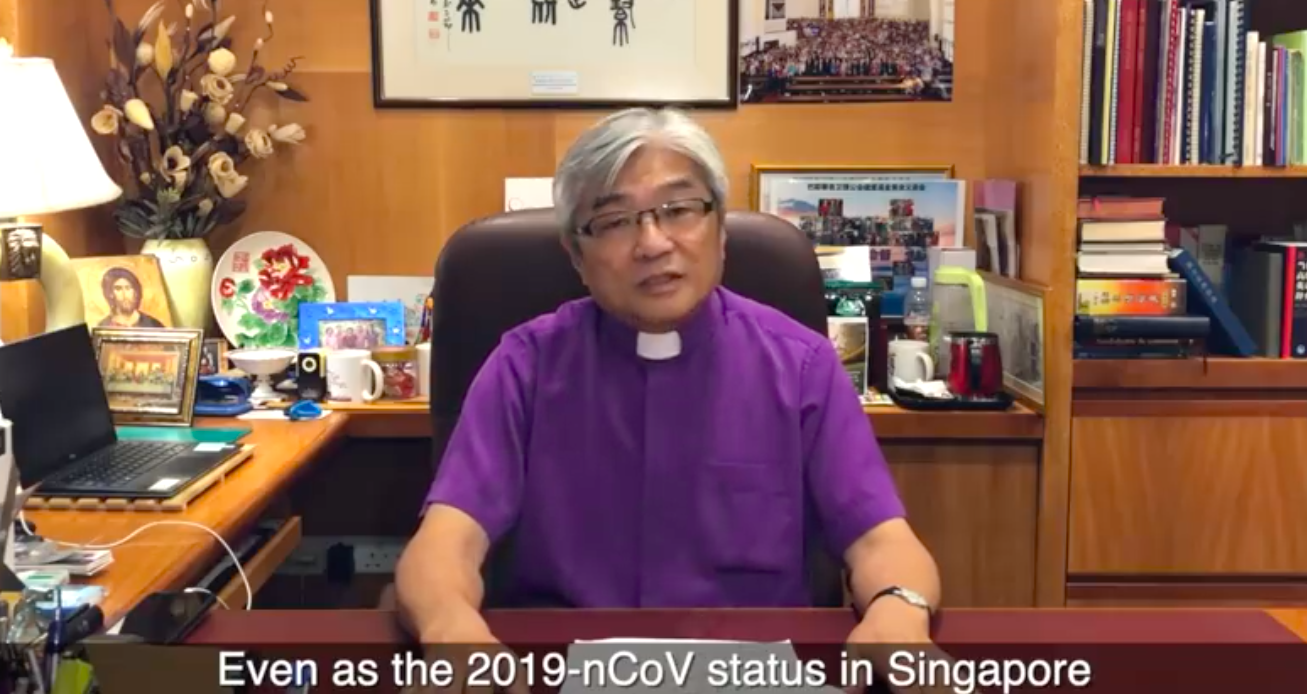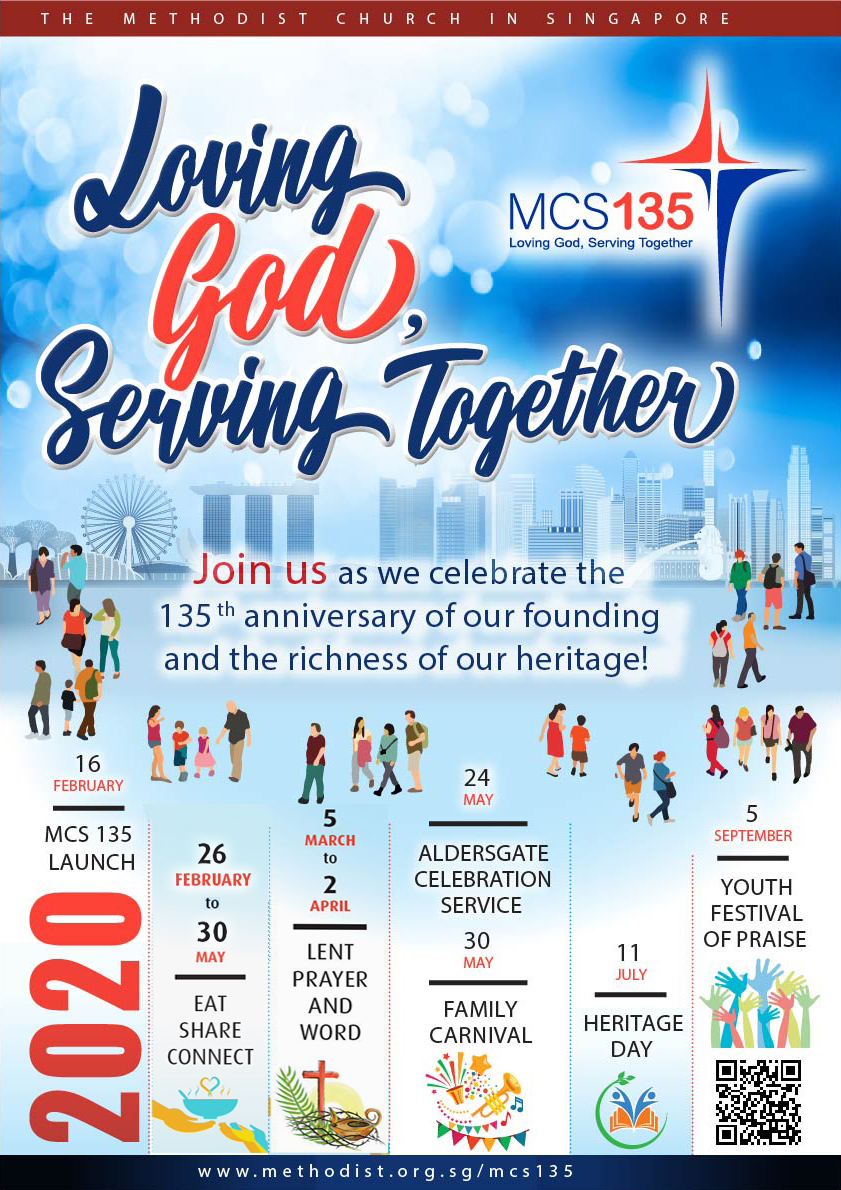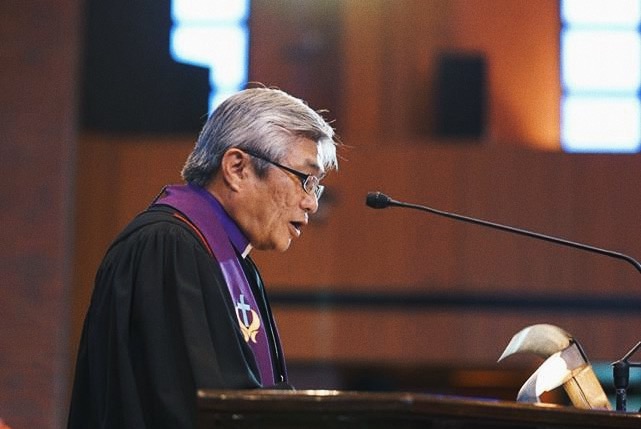The Methodist Church in Singapore (MCS) kicked off its 135th anniversary celebrations today, with a clarion call by Bishop Dr Chong Chin Chung for followers to love God and love their neighbours as themselves.
Against the current backdrop of national uncertainty and the need to rally together as a community in the face of COVID-19, his message was a timely reminder to Christians in Singapore that our faith in God needs to have social consequences.
Speaking this morning at Wesley Methodist Church, which is also celebrating its 135th year as the first Methodist church in Singapore, a pre-recorded sermon by the MCS Bishop was shown across all 46 Methodist churches in Singapore.

Preaching from Luke 10:25-37, he used the example of Jesus’ conversation with a teacher of the law, which centres on the well-known story of the Good Samaritan. During the time Jesus lived, the Samaritans were certainly not on the list of neighbours for people like the lawyer because of their mixed heritage.
In this story, after a man was beaten up by robbers, two educated men – a priest and a Levite – saw the man who had been attacked, but they “passed by on the other side”.
Later, only a Samaritan whose heart was moved by the sight came forward to pick the man up, put him on his own donkey, brought him to an inn and took care of him.
Jesus then asked the teacher of the law whom he thought, out of the three, was a neighbour to the man who was robbed and beaten.
The lawyer answered rightly – the Samaritan who showed mercy. Jesus then told him: “Go and do likewise.”
Bishop Chong then made this point: “Notice that when Jesus asked who is the neighbour of the man who was robbed, he was actually asking the lawyer to consider ‘who is my neighbour’.”
However, he was also asking the lawyer to consider “whose neighbour am I”, he said.
If the Samaritan could become the neighbour of the man who was assaulted, then could the lawyer also become the neighbour to someone in need?
“Jesus was also reminding us not to just ask, ‘who is my neighbour?’ but instead to ask, ‘whose neighbour am I’?” said Bishop Chong, acknowledging that loving one’s neighbours is probably even harder compared to loving God.
“This is because those we can see are harder to get along with, rather than a God whom we cannot see.”
Yet in telling that story, Jesus was not just speaking to the lawyer or people who worshipped God at that time.
He’s also speaking to us now, reminding us that loving a neighbour requires the same kind of effort that we put into loving God, said Bishop Chong.
How then will we be able to love our neighbours as ourselves?
“Religious belief not lived out in the presence of others, and not in interaction with others, has no place or purpose at all.”
Turning to John Wesley, the founder of Methodism who lived from 1703 to 1791, Bishop Chong explained that Wesley was constantly persuading believers to commit to a lifetime of holiness that is both inward and outward.
While inward holiness is about loving God with our whole being, outward holiness must be seen in our response towards our neighbours.
“Religious belief not lived out in the presence of others, and not in interaction with others, has no place or purpose at all,” said Bishop Chong.
In 2020, our daily lives must also demonstrate the spiritual fruit of a life of inward and outward holiness, he added.
How then are we able to live such a life?

Drawing again from the example of Wesley, Bishop Chong suggested two ways.
Firstly, believers must live in the grace of God. “Only God’s infinite grace can renew and sustain us spiritually, to live abundantly holy lives,” he said.
This is by means of grace, which include scripture study, prayer, fasting, the communion of saints, the breaking of bread, private and corporate worship, otherwise also known as “works of piety”.
“By such means of grace, Christians may train to live godly spiritual lives. In that way, we are able to have grace in abundance, sufficient to love and care for others,” explained Bishop Chong.
Secondly, believers must have others journeying with them in holy living.
Devout worship on its own is quite meaningless.
Wesley believed that that those who try to live a holy life by themselves will find that it is impossible unless there are Christians coming alongside to offer encouragement and support.
He also talked about “works of mercy” – good works done to others, including neighbours, strangers, friends and enemies.
“Devout worship on its own is quite meaningless,” said Bishop Chong.
“Christians cannot isolate themselves,” he pointed out. “Christians must be in connection with one another.”
Only then will we be able to grow in our spiritual lives, while the Church will become even more fruitful in her mission.

In closing, he reminded everyone that this 135th anniversary celebration is not just for Methodists, but for people from all faiths, races and languages – Singaporeans that the MCS has come to know and help through its ministries, such as its schools, children’s and old-age homes and other welfare services.
He said: “We must remember that it is God who put us in Singapore… that we may become good neighbours with the citizens and residents here for this last 135 years.
“We want to share this rich blessing with our neighbours. Let us do this – loving God, serving together.
“May God bless our neighbours. May God bless our nation, Singapore.”










